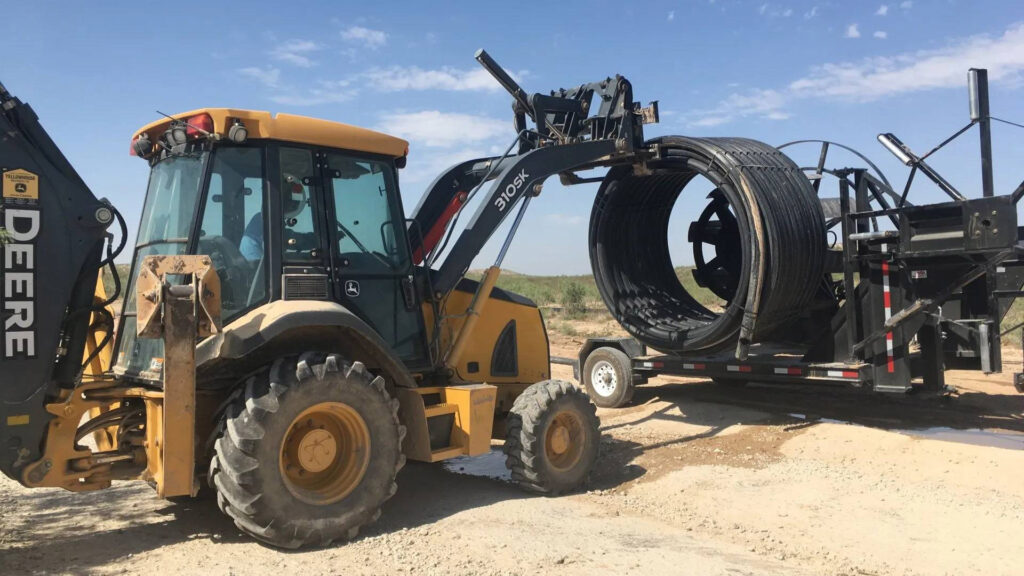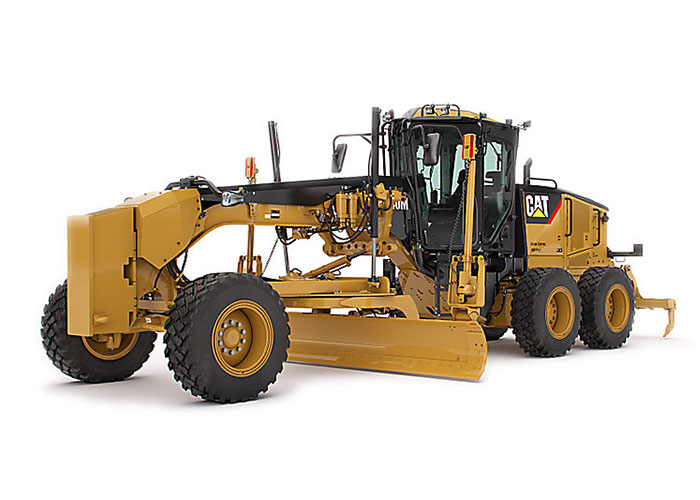A Comprehensive Overview to the Various Kinds Of Oil Field Equipment and Pipeline Equipment Available
The oil and gas market relies greatly on customized devices for effective removal and transport. Various types of equipment, from piercing rigs to tank, play crucial functions in this complex procedure. Each tool offers distinctive functions that contribute to general operational success. Recognizing these components is crucial for anybody entailed in the sector. As the market evolves, so too do the technologies that sustain it. What developments are on the perspective?

Drilling Rigs: The Backbone of Oil Expedition
Drilling rigs act as the essential equipment in the domain name of oil exploration, allowing business to gain access to hydrocarbon books hidden deep beneath the Planet's surface area. These rigs are available in different kinds, including land rigs, offshore rigs, and mobile units, each designed to run in particular settings. Outfitted with advanced innovation, piercing rigs can penetrate geological formations with precision, making sure reliable source removal. The architectural stability and operational abilities of these rigs are important, as they have to withstand extreme conditions and considerable pressures. The choice of an exploration rig influences the general task expense and timeline, making it a crucial consideration for oil business seeking to optimize their expedition initiatives and make the most of performance in their procedures.
Pumps: Crucial for Fluid Motion
In the oil extraction procedure, the function of pumps is substantial, promoting the motion of fluids throughout different stages of manufacturing. Pumps are necessary for transferring unrefined oil, water, and other liquids from underground tanks to the surface and afterwards through pipelines to refineries. They come in various kinds, consisting of centrifugal, favorable variation, and completely submersible pumps, each serving details objectives based on the fluid qualities and operational needs. Centrifugal pumps are typically made use of for their efficiency in high-flow applications, while favorable displacement pumps master taking care of viscous fluids. The selection of pump impacts general effectiveness, operational security, and upkeep costs. Appropriate selection and maintenance of pumps are vital for optimizing production and decreasing downtime in oil field procedures.
Valves: Controlling Flow and Pressure

Valves play a vital duty in managing the circulation and stress of liquids within oil areas and pipes. Various types of shutoffs offer unique applications, each designed to accomplish certain features basic for effective operation - Superior Rentals near me. Comprehending the features and uses these valves is vital for enhancing system performance and safety and security
Sorts of Valves
Important components in oil field procedures, valves play a critical duty in managing the flow and pressure of liquids within pipes and devices. Different kinds of valves are utilized to fulfill the diverse requirements of oil and gas production. Common kinds include gateway shutoffs, which give a straight-line circulation and very little pressure decrease; globe shutoffs, understood for their throttling capabilities; and sphere valves, acknowledged for their quick on/off control. Additionally, check shutoffs prevent backflow, while butterfly shutoffs offer a lightweight remedy for managing flow. Each valve kind is created with specific materials and configurations to hold up against the rough conditions frequently found in oil fields, making sure integrity and performance in operations. Comprehending these types is important for effective system administration.
Valve Applications and Features
While various kinds of valves offer distinct purposes, their key applications rotate around controlling circulation and stress within oil and gas systems. Valves such as gateway, world, and ball valves manage fluid movement, making sure peak efficiency and safety. Gateway shutoffs are generally made use of for on/off control, supplying minimal circulation resistance. World shutoffs, on the various other hand, deal specific circulation law, making them ideal for throttling applications. Sphere shutoffs are preferred for their quick procedure and tight sealing capacities. On top of that, stress relief valves are essential for protecting against system overpressure, securing devices stability. Overall, the suitable selection and application of shutoffs enhance functional performance, making sure the trusted transport of oil and gas through pipes and handling facilities.
Compressors: Enhancing Gas Transport
Compressors play an essential function in the reliable transport of natural gas, ensuring that it moves efficiently through pipelines over cross countries. These devices enhance the pressure of natural gas, allowing it to get rid of rubbing and altitude adjustments within the pipeline system. Furthermore, compressors promote the harmonizing of supply and need, suiting fluctuations in consumption and manufacturing prices. Various kinds of compressors are used in the sector, including centrifugal, reciprocating, and rotating screw compressors, each offering distinctive benefits based on the functional needs. Regular upkeep of these compressors is important to take full advantage of performance and lessen downtime, ultimately adding to a trustworthy gas transportation network. Their critical function highlights the significance of compressors in the general oil and gas facilities.
Storage Tanks: Safe and Effective Fluid Administration
Reliable transport of all-natural gas depends on different supporting systems, among which is the proper management of storage space tanks. These tanks play an important role in securely including liquids, guaranteeing that operational performance is kept while minimizing ecological threats. Created from sturdy products, they are made to stand up to high stress and destructive aspects. Appropriately sized and purposefully located, tank facilitate the smooth circulation of gas and other liquids, avoiding traffic jams in supply chains. Regular upkeep and surveillance are important to discover leaks or structural problems, advertising security and compliance with governing standards. Ultimately, the effective administration of tank is essential for the general stability and integrity of the oil and gas market's liquid handling systems.
Pipeline Systems: Facilities for Transportation
Pipeline systems act as the backbone of the oil and gas market, facilitating the effective transport of hydrocarbons over substantial distances. These systems contain numerous components, including pipes, valves, pumps, and compressors, all meticulously designed to guarantee smooth circulation. The products used in pipeline building and construction, commonly steel or high-density polyethylene, are chosen for sturdiness and resistance to deterioration. Pipeline networks can cover throughout land and water, connecting production sites to refineries and circulation. In addition, progressed innovation allows real-time surveillance of circulation prices and pressure levels, boosting functional performance. The critical positioning of these pipelines decreases ecological effect while optimizing source availability, therefore playing a vital role in conference energy demands around the world.
Security Equipment: Ensuring Employee and Environmental Management
The procedure standing water in sewer cleanout of pipeline systems, while necessary for energy transport, also offers significant safety and security challenges for employees and the environment. Safety and security equipment plays a substantial role in minimizing these risks. Individual safety devices (PPE) such as headgears, gloves, and non-slip shoes safeguards employees from physical risks. In addition, gas detection systems keep an eye on for leakages, guaranteeing that unsafe compounds do not present a threat to workers or the bordering community. Emergency situation shutdown systems are necessary for quickly stopping operations during a dilemma, preventing potential catastrophes. Spill control products, consisting of absorbents and obstacles, are fundamental for reducing ecological effect. On the whole, spending in all-encompassing security devices is essential for maintaining operational integrity and safeguarding both workers and the atmosphere in the oil and gas market.

Regularly Asked Concerns
Just how Do I Choose the Right Oil Field Equipment for My Job?
Choosing the ideal oil area equipment includes reviewing job requirements, budget restrictions, and functional needs. Consider aspects construction tents such as tools reliability, compatibility with existing systems, and the vendor's online reputation to guarantee peak efficiency and safety.
What Are the Maintenance Demands for Oil Field Equipment?
Upkeep needs for oil area equipment include blog here regular assessments, lubrication, and prompt fixings. Operators should likewise follow supplier standards, monitor performance metrics, and guarantee conformity with security guidelines to boost longevity and efficiency.

Exactly How Can I Make Certain Compliance With Environmental Laws?
To assure compliance with ecological regulations, business need to carry out normal audits, implement ideal practices, buy training, preserve correct paperwork, and remain upgraded on regulations (Superior Rentals Contact). Collaboration with environmental firms can also improve adherence to policies
What Is the Ordinary Life-span of Pipeline Equipment?
The typical lifespan of pipeline equipment normally ranges from 20 to 50 years, relying on factors such as material quality, environmental conditions, and maintenance practices. Regular inspections can significantly influence longevity and operational performance.
Just how Do I Securely Move Oil Field Equipment to Remote Locations?
Transporting oil area tools to remote areas needs cautious planning, consisting of course analysis, protecting licenses, using appropriate vehicles, and making certain safety and security procedures are complied with. Proper training and interaction amongst crews are important for effective transport.